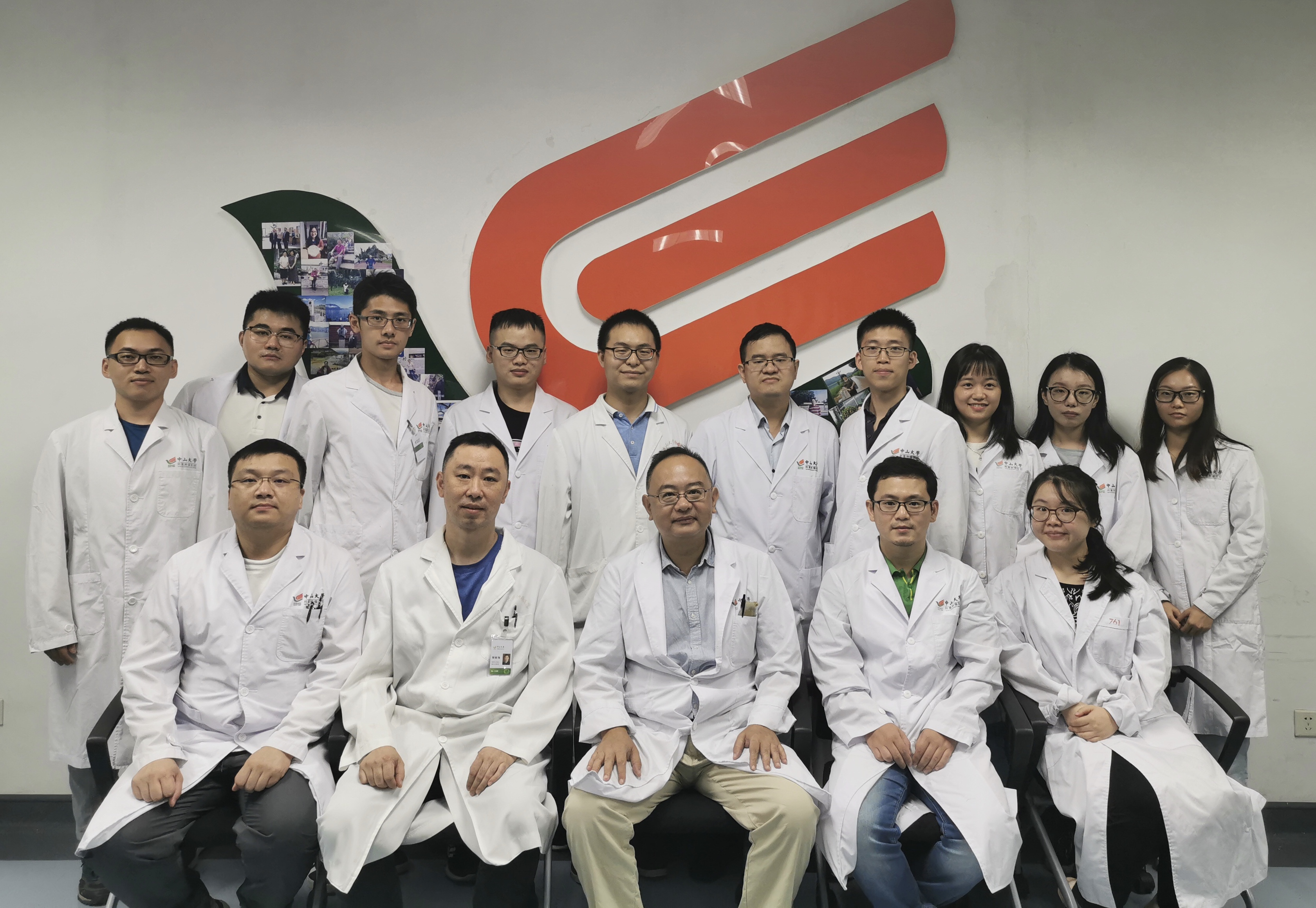


一、基本情况
石明教授
中山大学肿瘤防治中心肝外科
教授,博士生导师
国家杰出青年项目获得者
广东省医学领军人才
“广东特支计划”科技创新领军人才
二、本课题组主要研究方向
课题组主要研究肝癌肝动脉栓塞化疗(TACE)与持续灌注化疗(HAIC)、肝癌化疗耐药的机制。代表性学术成果的特色在于系统性、高质量、规范化的临床研究,并在此基础上对肝癌发生、进展的机制进行深入的探讨和研究。这些结果在以通讯作者在JAMA Oncol(IF:24.8)、J Natl Cancer Inst(IF:11.6)、Hepatology(IF:14.7)、Radiology(IF:7.9)、EUR J CANCER(IF:7.3)、ANN SURG(IF:10.1)等国际权威杂志上发表,并被广泛引用。
三、在研主持课题
1. 国家杰出青年科学基金,81625017,肿瘤学(消化系统肿瘤),2017/01-2021/12
2. 国家自然科学基金面上项目,82072610,LncRNA DUBR通过Notch通路调控肝癌细胞干性及化疗耐药的机制研究,2021/01-2024/12
四、团队近五年主要成绩
① 提示索拉菲尼联合HAIC治疗晚期肝癌的疗效优于索拉菲尼单药治疗。牵头国内多家研究单位,开展了一项前瞻随机Ⅲ期研究,研究结果显示接受索拉非尼联合奥沙利铂+氟尿嘧啶+甲酰四氢叶酸(FOLFOX)方案的肝动脉灌注化疗的患者,疗效显著优于单用索拉非尼的患者(JAMA Oncol,2018)。
② 为HAIC适应证添加了新内容。为HAIC用于治疗拒绝索拉菲尼等分子靶向治疗/系统化疗,或分子靶向治疗/系统化疗无效患者;以及对于部分已有肝外转移的肝癌患者提供依据(CSCO,2020;ESMO,2020)
③ 预测TACE疗效、筛选受益人群。应用全基因组芯片对比了TACE治疗前进展与否的肿瘤转录组信息,筛选了一批差异最显著的基因。证明所筛选的基因之一MEP1A是促进肿瘤增殖转移和耐药的一个关键驱动基因,是肝癌治疗的潜在干预靶点(Hepatology,2015)。揭示另一个基因NAP1L1可以透过调控肿瘤细胞干性,进而影响肝癌细胞耐药(Cancer Cell Int,2019)
五、代表性论文
1. He M, Li Q, Zou R, Shen J, Fang W, Tan G, Zhou Y, Wu X, Xu L, Wei W, Le Y, Zhou Z, Zhao M, Guo Y, Guo R, Chen M, Shi M. Sorafenib plus hepatic arterial infusion of oxaliplatin, fluorouracil, and leucovorin vs sorafenib alone for hepatocellular carcinoma with portal vein invasion: a randomized clinical trial. JAMA Oncol. 2019;5(7):953-60 (IF: 22.4)
2. OuYang HY, Xu J, Luo J, Zou RH, Chen K, Le Y, Zhang YF, Wei W, Guo RP, Shi M. MEP1A contributes to tumor progression and predicts poor clinical outcome in human hepatocellular carcinoma. Hepatology 2016; 63(4): 1227-39. (IF: 13.2)
3. Le Y, Kan A, Li QJ, He MK, Chen HL, Shi M. NAP1L1 is a prognostic biomarker and contribute to doxorubicin chemotherapy resistance in human hepatocellular carcinoma. Cancer Cell Int. 2019;10(3):665-71 (IF: 3.4)
4. He M, Li Q, Shen J, Tan G, Li Q, Lai J, Wei W, Zhang Y, Zou R, Chen M, Guo R, Shi M. Predictive factors for the benefit of triple-drug transarterial chemoembolization for patients with unresectable hepatocellular carcinoma. Cancer Med. 2019;8(9):4200-133 (IF: 3.2)
5. Chen HL, OuYang HY, Le Y, Jiang P, Tang H, Yu ZS, He MK, Tang YQ, Shi M. Aberrant MCT4 and GLUT1 expression is correlated with early recurrence and poor prognosis of hepatocellular carcinoma after hepatectomy. Cancer Med. 2018;7(11):5339-50 (IF: 3.2)
6. He MK, Zou RH, Li QJ, Zhou ZG, Shen JX, Zhang YF, Yu ZS, Xu L, Shi M. Phase II study of Sorafenib combined with concurrent hepatic arterial infusion of Oxaliplatin, 5fluorouracil and Leucovorin for unresectable hepatocellular Carcinoma with major portal vein thrombosis. Cardiovasc. Intervent. Radiol. 2018; 29(8): 1068-1077 (IF: 1.9)
7. He MK, Zou RH, Wei W, Shen JX, Zhao M, Zhang YF, Lin XJ, Zhang YJ, Guo RP, Shi M. Comparison of Stable and Unstable Ethiodized Oil Emulsions for Transarterial Chemoembolization of Hepatocellular Carcinoma: Results of a Single-CenterDouble-Blind Prospective Randomized Controlled Trial. J Vasc Interv Radiol. 2018;29(8):1068-77 (IF: 2.8)
8. He MK, Le Y , Li QJ, Yu ZS, Li SH, Wei W, Guo RP, Shi M. Hepatic artery infusion chemotherapy using mFOLFOX versus transarterial chemoembolization for massive unresectable hepatocellular carcinoma: a prospective non-randomized study. Chin J Cancer. 2017;36(1):83 (IF: 3.8)

